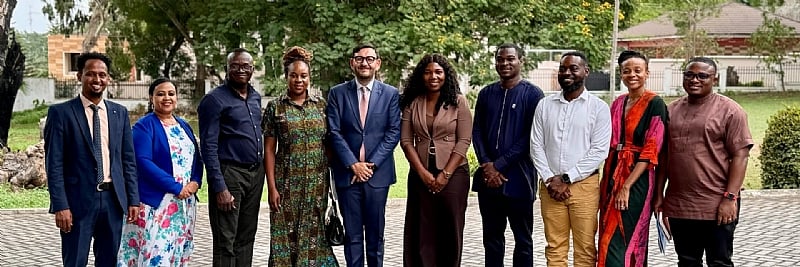The United Nations Economic Commission for Africa (ECA) recently concluded a productive mission to Accra, Ghana, aimed at exploring the nation’s potential involvement in the UN-Habitat’s Quality of Life (QoL) Initiative. This program centers around improving urban living standards by focusing on the needs and aspirations of city dwellers. The ECA delegation engaged with key stakeholders, including the National Development Planning Commission (NDPC), the Ghana Statistical Service, and the United Nations Country Team, to discuss how the QoL Initiative could complement Ghana’s existing urban development strategies, particularly its progress in localizing the Sustainable Development Goals (SDGs) and utilizing its established data collection infrastructure. The core objective was to determine how the QoL Initiative could contribute to enhancing the well-being of Ghanaians residing in urban areas.
Central to the discussions was the concept of “putting a human face to development,” moving beyond mere economic metrics and focusing on the tangible impact on citizens’ lives. Dr. Felix Addo Yobo, Director of the Development Policy Division at NDPC, emphasized the importance of not just identifying challenges but also learning from successful strategies implemented in other regions and adapting them to Ghana’s specific context. The goal is to translate QoL assessments conducted at the district level into concrete policy improvements that directly enhance the lives of citizens. With Ghana experiencing rapid urbanization, exceeding the continental average, the QoL Initiative is seen as a crucial tool for ensuring that this growth translates into improved living conditions for all.
The QoL Initiative offers a data-driven approach to urban development, providing city leaders with the necessary insights and tools to prioritize investments based on community needs. The initiative features a comprehensive index that combines global SDG benchmarks with locally identified priorities, empowering municipalities to allocate resources effectively. Discussions with NDPC revolved around integrating the QoL Initiative into Ghana’s existing SDG localization and Voluntary Local Review (VLR) processes, ensuring a streamlined and synergistic approach to community development. The aim is to maximize the impact of these initiatives at the grassroots level.
Collaboration with the Ghana Statistical Service focused on assessing existing data strengths and identifying any gaps. Discussions also addressed aligning QoL indicators with national systems to facilitate evidence-based urban policy and development. Professor Samuel Kobina Annim, Government Statistician of Ghana, highlighted the initiative’s emphasis on social issues that underpin economic progress, emphasizing its potential to provide a more nuanced understanding of living conditions beyond traditional economic indicators like GDP. He urged the ECA to continue advocating for the role of robust statistical data in policy formulation and to collaborate on developing a QoL framework that balances global aspirations with local needs.
The ECA expressed its admiration for Ghana’s commitment to people-centered development, emphasizing the QoL Initiative’s potential to transform data into actionable decisions that tangibly improve lives. They reiterated their commitment to partnering with Ghanaian stakeholders to advance this vision. The UN Country Team also engaged with the delegation, exploring how various UN agencies operating in Ghana could contribute their expertise and ongoing projects to the QoL Initiative, ensuring a collaborative and multi-faceted approach.
Accra serves as one of four pilot cities participating in the ECA’s scoping missions. These missions aim to gather in-depth information about various facets of urban life, including access to essential services, housing conditions, social inclusion, and economic opportunities. The collected data will inform policy proposals aimed at fostering improvements in these areas. The ultimate goal is to create a comprehensive understanding of urban living in Accra and to develop tailored strategies for enhancing the quality of life for all residents. The insights gained from Accra’s participation will also contribute to the broader development of the QoL Initiative and its application in other urban contexts across Africa.


